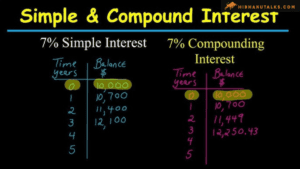
Japan’s Nikkei Index Faces Its Worst Decline in Decades Amid Global Market Turmoil Over US Economic Risks
Contents
Ripple Effects on World Markets
Japan’s Nikkei Index Faces Its Worst Decline in Decades Amid Global Market Turmoil Over US Economic Risks


On August 5, 2024, the global stock market faced a severe shakeup, with Japan’s Nikkei 225 index experiencing its most dramatic decline in decades. The Nikkei plummeted by 12.4%, marking its worst single-day drop since the infamous “Black Monday” of October 19, 1987. This sharp decline was part of a broader global market rout triggered by mounting fears of a US recession and geopolitical tensions.
Details of the Nikkei’s Plunge
- Nikkei 225 Performance: The Nikkei 225 closed down 4,451.28 points at 31,458.42, after dropping 5.8% on the previous trading day. This two-day decline is the worst on record for the index.
- Historical Context: The Nikkei’s single-day drop of 12.4% surpasses its previous worst decline of 14.9% on “Black Monday,” although the latter was ultimately a short-term setback.
Factors Contributing to the Market Turmoil
- US Economic Concerns:
- Jobs Report: A recent report revealed that US job creation slowed more than expected in July, with the unemployment rate rising to 4.3%. This has intensified fears of a potential recession in the US.
- Federal Reserve Policy: Uncertainty over the Federal Reserve’s future interest rate cuts has compounded these fears. Previously, rate cut expectations had buoyed global markets, but the latest data suggests the Fed may have kept rates too high for too long.
- Global Market Reactions:
- European Markets: European indices also suffered, with Germany’s DAX down 2.3%, France’s CAC 40 losing 1.9%, and the UK’s FTSE 100 declining 2.1%.
- US Futures: Early trading indicators for the US markets showed significant declines, with the S&P 500 futures down 2.5% and the Dow Jones futures down 1.6%.
- Impact on Technology Stocks:
- Asia-Pacific Markets: The turmoil spread to other markets heavily weighted towards technology. South Korea’s Kospi dropped over 9%, led by a 10.3% fall in Samsung shares. Taiwan’s Taiex fell 8.4%, with Taiwan Semiconductor Manufacturing Co. dropping 9.8%.
- Volatility Index: The VIX, a measure of market volatility, surged by about 26%, reflecting heightened investor anxiety.
- Currency and Commodity Movements:
- Yen Decline: The Japanese yen fell sharply to 142.37 per dollar, down from 146.45. This currency movement reflects investor reactions to the market turmoil.
- Commodity Prices: Oil prices also fell, with US crude down 74 cents to $72.78 per barrel and Brent crude losing 67 cents to $76.14 per barrel.
- Investor Sentiment and Market Outlook:
- Global Sell-off: Markets worldwide, including Hong Kong’s Hang Seng (-2.2%) and Australia’s S&P/ASX 200 (-3.7%), were negatively impacted. The Shanghai Composite index, somewhat shielded by capital controls, fell by 1.5%.
- US Market Correction: The S&P 500’s recent decline of 1.8% and the Nasdaq’s 2.4% drop have led to what is known as a “market correction,” reflecting a significant adjustment from recent highs.


Expert Opinions
- Stephen Innes (SPI Asset Management): The surge in market volatility highlights investor jitters. The key question is whether traditional market responses, like buying the dip, will prevail over the current deep-seated recession fears.
- Yeap Jun Rong (IG): Investors are closely watching upcoming data on the US services sector to determine if the global sell-offs are an overreaction.
Conclusion
The global stock market has been shaken by a combination of factors, including US economic data, geopolitical tensions, and high market volatility. The Nikkei 225’s record drop underscores the seriousness of these issues, while other markets also face significant challenges. Investors should remain cautious and stay informed as the situation continues to evolve.


FAQs
- What caused the Nikkei index to drop so drastically?
- The Nikkei 225 plunged due to fears of a US recession following disappointing job data and uncertainty about the Federal Reserve’s interest rate policy.
- How did other markets react to the Nikkei’s decline?
- Other global markets, including European and Asia-Pacific indices, also experienced declines, reflecting a broad-based sell-off.
- What are the implications of the Nikkei’s drop for global investors?
- The drop signals increased market volatility and potential economic risks, prompting investors to reassess their portfolios and investment strategies.
- How did currency and commodity markets respond to the stock market turmoil?
- The Japanese yen fell sharply, and oil prices also decreased, reflecting broader market instability.
- What should investors watch for moving forward?
- Investors should monitor upcoming economic data, especially from the US, and remain attentive to geopolitical developments and central bank policies.





















2 comments